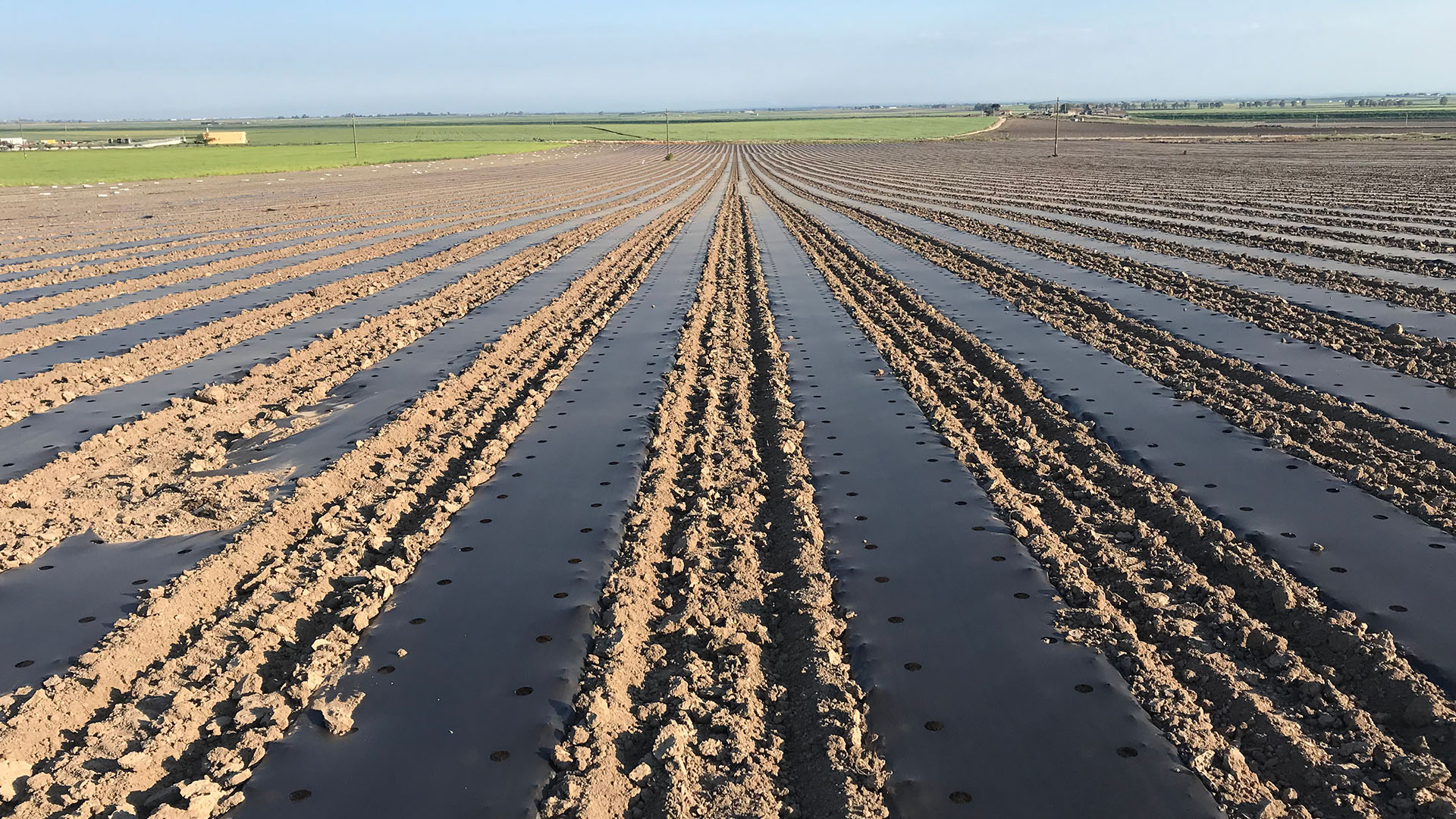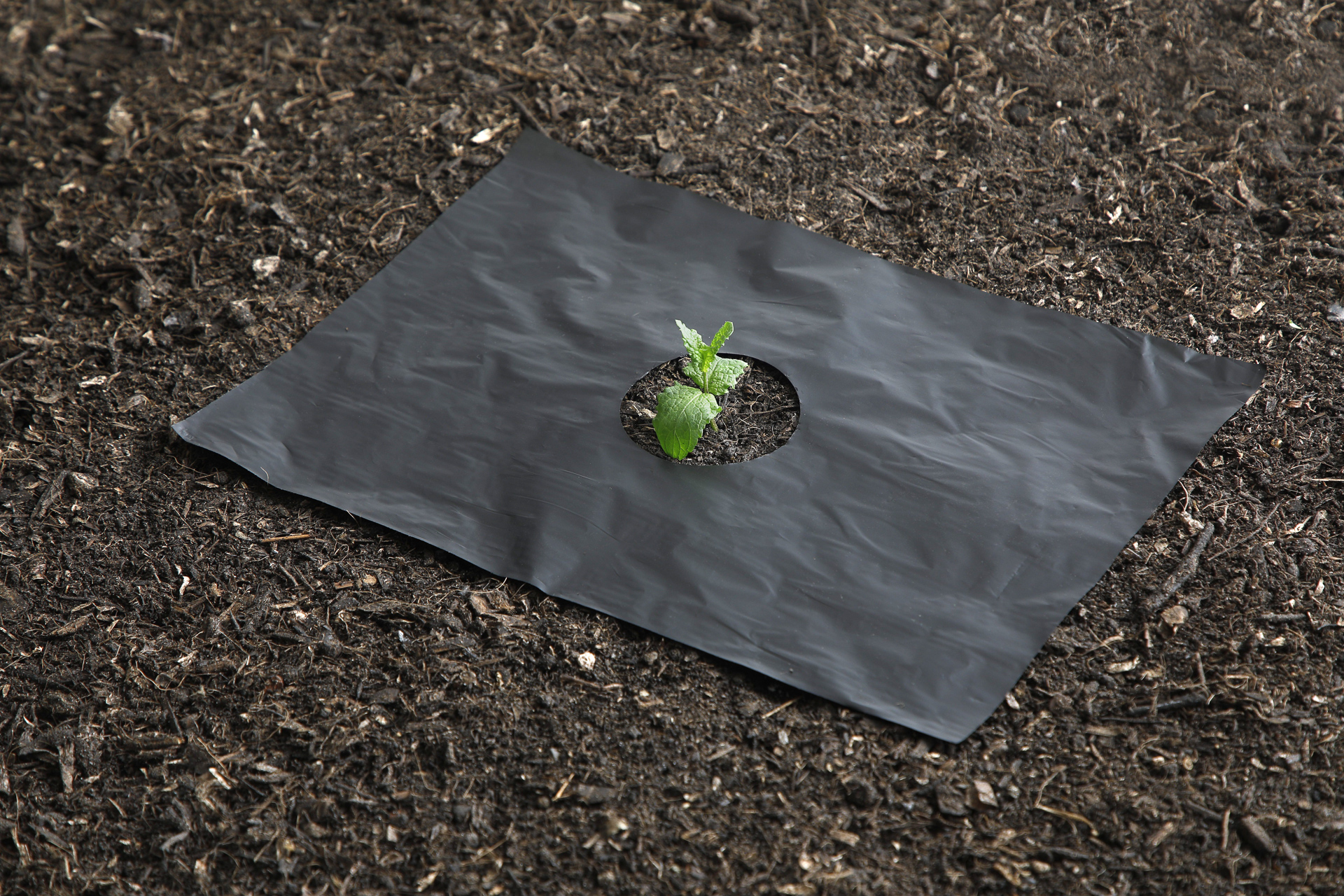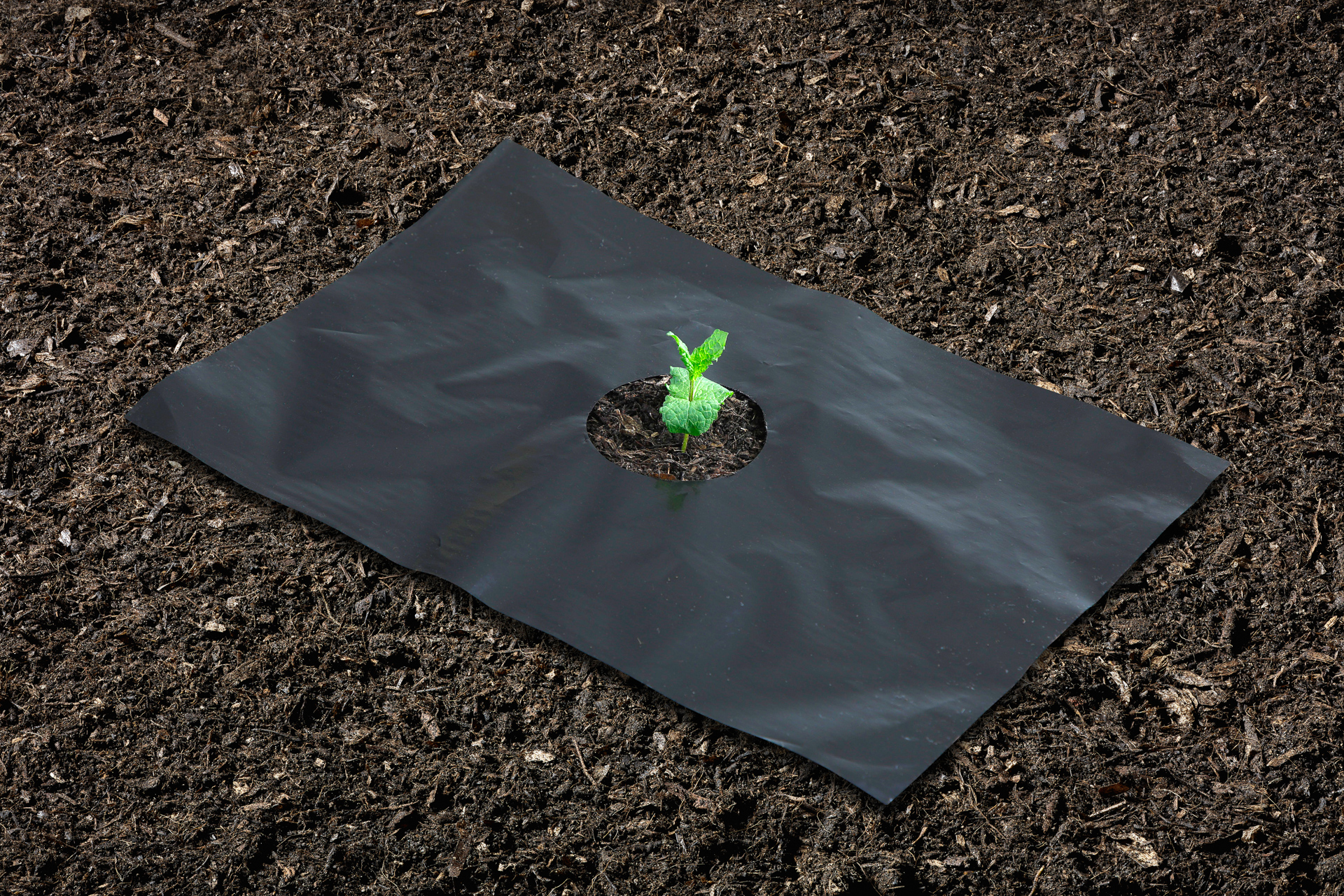Biodegradable and Compostable Films
AGRIBIO® 7 layers
The use of biodegradable and compostable films in agriculture is undoubtedly an important innovation capable of providing a solution to environmental issues and the difficulties faced by farmers in disposing of traditional mulch films once the cultivation cycle is completed.
The film is produced in various colors and thicknesses to meet the needs of farmers, both in terms of durability and agronomic aspects:
Agribio® Nero is the best-selling version for mulching crops with a winter-spring cycle;
Agribio® Fumè, thanks to its high heating power, offers significant advantages for early transplanting with a winter-spring cycle;
Agribio® BiancoNero allows for good control of soil temperatures and is therefore particularly appreciated for mulching crops with a spring-summer cycle.
Why is it sustainable?
• Made from materials derived from starch and vegetable oils
• Zero plastic waste at the end of its cycle (it transforms into: organic matter, CO2, H2O)
• Reduces labor costs
• - 500 kg of CO2 emitted per cultivated hectare
• - 80% reduction in non-renewable resource consumption

RECOMMENDATIONS FOR USE
Soil Preparation
• REFINE THE SOIL:
Rocks and plant residues can damage the film during application.
• AVOID SURFACE ORGANIC FERTILIZATION:
The use of surface organic fertilization immediately before application can cause premature degradation of the film.
Tarpaulin Application
• PAY ATTENTION TO APPLICATION PARAMETERS:
Excessive tension can cause film stretching, compromising its characteristics.
• DO NOT PRESS THE FILM:
It is recommended to avoid using rollers to force adhesion to the ground, as the thin film will adapt to the underlying surface on its own.
• CONCURRENTLY APPLY AND TRANSPLANT:
It is advisable to carry out these operations simultaneously to optimize the film's lifespan.
Puncture
• USE TARP PUNCTURING SYSTEMS DIRECTLY ON THE GROUND.
• MANUAL PUNCTURING:
Avoid equipment that can create irregular holes at the edges to preserve the integrity of the tarp.
Storage
• STORE ROLLS IN A CLOSED SPACE:
It is recommended to store rolls in a closed space, preferably in their original packaging and protected from water, direct light, and heat sources.
At the end of the cultivation cycle
Do not remove from the soil
Agribio® should not be removed from the soil but worked into it. This way, it will be in the ideal environment for degradation thanks to the presence of microorganisms.
Degradation Times
The speed of film degradation is closely linked to the microorganisms present in the soil. A higher or lower concentration of microorganisms can cause faster or slower film degradation.








